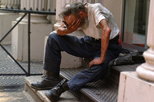 https://www.soberrecovery.com/images/og-image.gif
https://www.soberrecovery.com/images/og-image.gif
 https://cimg0.ibsrv.net/cimg/www.soberrecovery.com/619x412_85/276/BOUNCE-BACK-554276.jpg
619
412
https://cimg0.ibsrv.net/cimg/www.soberrecovery.com/619x412_85/276/BOUNCE-BACK-554276.jpg
619
412
Bouncing Back After Relapse: It's Not All Bad
By Dawn Hurley 619
412
https://cimg0.ibsrv.net/cimg/www.soberrecovery.com/619x412_85/276/BOUNCE-BACK-554276.jpg
619
412
https://cimg0.ibsrv.net/cimg/www.soberrecovery.com/619x412_85/276/BOUNCE-BACK-554276.jpg
Finding yourself in the midst of a relapse can feel like an insurmountable failure, leaving you wondering how you became enslaved once again. However, finding the courage to pick up the pieces in the weeks after a relapse may feel even more daunting.
If you've had a relapse recently, it doesn’t have to define your recovery. However, it can inform your future decisions, keeping you on the right track. The best way to manifest this outcome is to focus on the most important, rational takeaways from your experience.
Although relapse may seem like a worst-case scenario, successfully bouncing back afterward may bring some unwanted surprises. Moreover, focusing on the positive aspects of relapsing can make your journey back to sobriety less scary and more fulfilling.
The Bad News First
Buckle Up
No matter how long you were sober before you relapsed, you’re guaranteed to experience a combination of scary feelings—including shame, fear, guilt, and humiliation, among others. Be ready for these feelings to hit you tenfold, but recognize them as part of the bouncing back process.
Those feelings can’t hurt you, but the negative self-talk that often comes along with them can keep you in hiding and endanger your sobriety even more. Dust off your sobriety toolkit, lean into the feelings and get back in the game.
Beware of the Revolving Door
Relapse does happen, and it can happen over and over and over again. You don’t have to live in fear of it, but you do need to understand that something about your recovery program was out of balance. If you go back to exactly what you were doing, it won’t take long to fall back into the same pattern that contributed to your relapse.
I relapsed compulsively for years—went in and out of rehab, ruined most of my relationships and put my body through hell—but I never changed enough to maintain my sobriety. Now, I know that I wasn’t fully committed. I got caught in the revolving door, costing me everything that meant anything to me.
Now, the Good News
You can Come Back Stronger Than Ever
Detoxing and pulling yourself out of a relapse takes a lot of courage, but you have what it takes to come back even stronger than you were before. Knowing the fear and shame you faced—as well as the physical pain—you can rest assured that you have the bravery it takes to get better every day and stay sober.
Your Sober Time Isn't Lost
No matter how days are counted in your recovery program, you don’t truly lose the sober days you had before you slipped. After my setback, I had a brief battle with self-defeating thoughts about “losing” my 6 months.
However, largely due to my recovery toolbox, I quickly realized I needed to turn that thinking around before I got too lost in self-pity. I was able to look at my situation another way: By ending the year sober, I will have been sober 359 out of 365 days. That leaves room for improvement next year.
It’s a New Beginning
The only way your relapse has power is if your dwelling on it diverts you from the sober life you've made. More than likely, others aren’t looking at your slip as the end of the sober road for you, so why should you? Instead, it can mean self-discovery, re-evaluation, and strong motivation to overcome.
Remember the things you were excited about in sobriety and pick them up again. Coming out of relapse can feel like you’ve been given a new life, so allow yourself to engage in activities that are healing. Personally, I re-evaluated everything I was doing prior to my relapse. I discovered that I enjoyed writing even more than I thought, and I also learned how some things were simply no longer serving me.
View it as a Stepping Stone
Honestly, there may be nothing more motivating than a painful relapse because you desperately want to feel healthy and productive again. You’ve had some sober time, and you want it back.
Rather than seeing my relapse as purposeless, I'm grateful that I came out with a better understanding of just how fragile my recovery is and that the threat of relapse is real—even when I’m feeling strong in my sobriety.
The most important thing to remember when or if you slip back into old habits is that every relapse has solutions, and there will always be new ways to approach your sobriety.
I came out of relapse this time without going back to treatment. I’m glad I took that route, even though it was a bit risky. There were no medications to ease withdrawal, and my meals were up to me. I couldn’t sleep it off, so I had lots of lucid moments, reminding myself to take note of the misery I was feeling. I told myself repeatedly that I would have to think new thoughts, do different things and hone new skills to find my sober groove again.
And, I made that experience my new starting place.
If you or someone you know is seeking assistance with maintaining long-term recovery, please visit our directory of treatment centers or call 800-772-8219 to start the path to recovery today.






